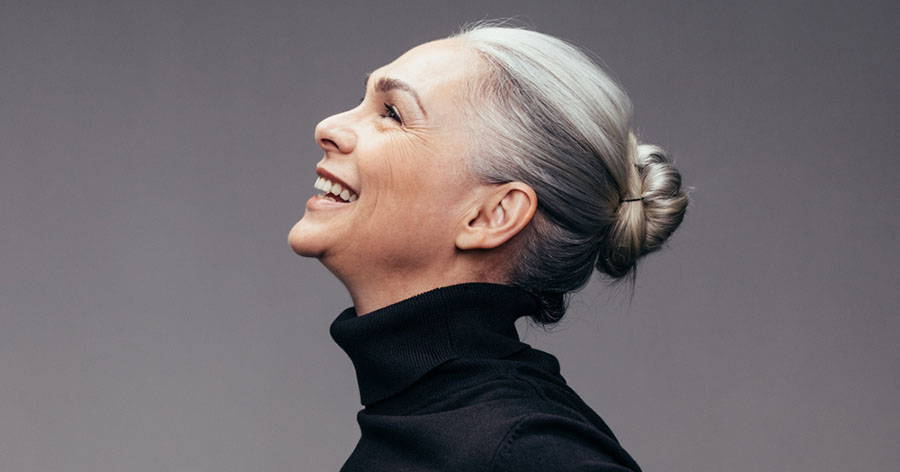What Causes Gray Hair?
If you are noticing gray in your hair, you may be wondering what causes it. The health and beauty experts at WebMD explain that your hair follicles have pigment cells. These cells make melanin, which gives your hair its unique color. As you get older, the cells do not reproduce like they used to. The result is less pigment, which makes new hair strands grow lighter.
In the beginning, your hair may be a shade of dark gray. Over the years, it should turn different shades of gray, silver, and white. Since it is impossible for the cells to make melanin again, dyeing the hair is the only way to change its hue.
Gray hair has also caught the attention of many younger women as it’s become a trendy beauty and fashion style in the hair coloring world. From subtle highlights to full-on silver bobs, women are embracing grey hair and are taking it up themselves to “go grey” on their own terms.
Why Gray Hair & Hair Loss Are Related
Gray hair and hair loss are not only two typical signs of aging—they may actually be related to each other. This link between graying and thinning hair was found through cancer research. A scientist in Texas discovered a protein called KROX20 that not only affects cancerous tumor growth but also impacts the skin cells that form your hair shafts.
In fact, says the doctor and his team, the protein has the power to turn these cells on and off. When turned to the “on” position, they produce another protein known as Stem Cell Factor (SCF), which is critical in creating hair color.
During the course of their studies, Dr. Le and his team deleted the KROX20 protein cells in mice. The mice did not have any skin cells turn into hair shafts, so their hair fell out. When the SCF protein cells were deleted from the mice’s skin cells, their hair turned gray and then white. This means that while KROX20 and SCF may not be the only reasons for hair falling out or turning gray, they definitely have an impact on your hair health.
More research must be done on hair loss and graying strands, but what we do know is that your age and your genetic makeup affect the wellness of your locks. While you cannot completely reverse the aging process or change your heredity, you can use innovative treatments and therapies to enhance your natural hair color and improve its thickness.

Do Laser Caps Really Work for Hair Loss?
Dandruff vs. Dry Scalp: Understanding the Differences